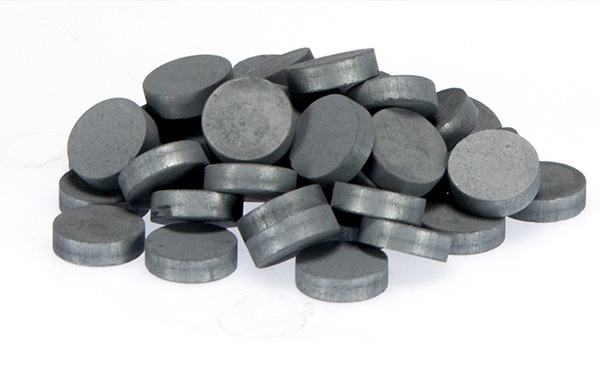
Rhenium Alloy Recycling
Rhenium alloys are alloy materials composed of rhenium and other metals (such as tungsten, molybdenum, and nickel) that have a very high melting point, strength, and corrosion resistance. Waste rhenium alloys are one of the sources of recycling of rhenium-containing waste. Other sources of recycling of rhenium-containing waste include rhenium powder recycling, rhenium block recycling, rhenium alloy recycling, rhenium oxide recycling, and rhenium chloride recycling.
- Parameter
- Related Questions and Answers
-
Name : Rhenium Alloys
-
Use : Manufacturing of electronic devices, catalysts, and high-precision equipment
-
Application Areas : Aerospace, nuclear industry, electronics industry, etc.
-
Appearance and properties : Alloy
-
Settlement Method : On-site payment
-
Recycling Type : Rhenium recycling
-
Door-to-door recycling:worldwide
-
Customer service: Free content testing and door-to-door recycling
Ammonium Rhenate Recycling
Ammonium perrhenate (chemical formula: NH₄ReO₄) is the ammonium salt of rhenium and usually appears as white or colorless crystals. Waste ammonium rhenate is one source of recycling of rhenium-containing waste. Other sources of recycling of rhenium-containing waste include rhenium powder recycling, rhenium block recycling, rhenium alloy recycling, rhenium oxide recycling, and rhenium chloride recycling.
Search : Ammonium Rhenate RecyclingRhenium Alloy Recycling
Rhenium alloys are alloy materials composed of rhenium and other metals (such as tungsten, molybdenum, and nickel) that have a very high melting point, strength, and corrosion resistance. Waste rhenium alloys are one of the sources of recycling of rhenium-containing waste. Other sources of recycling of rhenium-containing waste include rhenium powder recycling, rhenium block recycling, rhenium alloy recycling, rhenium oxide recycling, and rhenium chloride recycling.
Search : Rhenium Alloy RecyclingRhenium Chloride Recycling
Rhenium chloride (ReCl₅) is a rhenium chloride, usually produced by reacting rhenium with chlorine gas at high temperatures. It is an orange-red solid that is unstable in air and decomposes to the lower valence rhenium chloride. Waste rhenium chloride is one source of recycling of rhenium-containing waste. Other sources of recycling of rhenium-containing waste include rhenium powder recycling, rhenium block recycling, rhenium alloy recycling, rhenium oxide recycling, and ammonium rhenate recycling.
Search : Rhenium Chloride RecyclingRhenium Powder Recycling
Rhenium powder is a fine powder of elemental rhenium, usually gray or silvery-white in color, with excellent resistance to high temperatures and corrosion. Waste rhenium powder is one of the recycling sources of rhenium-containing waste. Other recycling sources of rhenium-containing waste include rhenium powder recycling, rhenium block recycling, rhenium alloy recycling, rhenium oxide recycling, and rhenium chloride recycling.
Search : Rhenium Powder RecyclingProduct Details
Rhenium alloys are alloy materials composed of rhenium and other metals (such as tungsten, molybdenum, and nickel), which have a very high melting point, strength, and corrosion resistance. Rhenium alloys are often used for special applications in high temperature and pressure environments, such as aerospace, nuclear industry, and electronics industry. Rhenium has high temperature properties, which give it excellent resistance to high temperatures, oxidation, and radiation in harsh environments. It is often used in the manufacture of aircraft engine parts, rocket nozzles, turbine blades, etc. Rhenium alloys are also often used in high temperature alloys to improve the strength and stability of the material.
The common types of rhenium alloys mainly include:
1. Rhenium-tungsten alloys (Re-W alloys): Rhenium-tungsten alloys are alloys composed of rhenium and tungsten metals, which are usually used in applications that require very high temperature work and very high strength. The high melting point of tungsten and the excellent high temperature resistance of rhenium allow this alloy to maintain its excellent mechanical properties even in extremely high temperature environments. It is widely used in the aerospace and military fields, especially in rocket nozzles, engine parts, high-temperature detectors, etc.
2. Rhenium-molybdenum alloy (Re-Mo alloy): Rhenium-molybdenum alloy is composed of rhenium and molybdenum elements, and has excellent high-temperature strength and oxidation resistance. Molybdenum alloy itself has excellent high-temperature performance, and the addition of rhenium can further improve the stability of the alloy in high-temperature and corrosive environments. Rhenium-molybdenum alloy is often used in high-temperature and high-pressure chemical reactors, spacecraft parts, and some high-strength alloy materials.
3. Rhenium-nickel alloy (Re-Ni alloy): Rhenium-nickel alloy is a combination of rhenium and nickel alloy, and has good toughness, corrosion resistance and strong high-temperature performance. Rhenium-nickel alloy is often used in the electronics industry, especially for parts that require both electrical conductivity and high-temperature resistance, such as electron tubes and heating elements.
4. Rhenium aluminum alloy (Re-Al alloy): Rhenium aluminum alloy combines the high temperature resistance of rhenium with the lightweight properties of aluminum, and is often used for high temperature applications with high weight requirements, such as certain parts of spacecraft and aircraft engines. This alloy has good application prospects in the aerospace field, especially in the research and development of lightweight high temperature alloy materials.
5. Rhenium copper alloy (Re-Cu alloy): Rhenium copper alloy combines the high temperature resistance and oxidation resistance of rhenium with the good electrical conductivity and processability of copper. This type of alloy is widely used in the electronics industry, especially for high frequency, low resistance and high temperature resistant electronic components, which can function in harsh environments and extend the service life of the components.
Waste rhenium alloy is one of the recycling sources of rhenium-containing waste. Other sources of rhenium-containing waste recycling include rhenium powder recycling, rhenium block recycling, rhenium alloy recycling, rhenium oxide recycling, and rhenium chloride recycling. If you need germanium scrap recycling, please call our 24-hour service hotline. Dingfeng precious metal recycling and refining manufacturer has an independent recycling and refining plant without any middlemen to create price differences, and our professional technical team and customer service staff provide one-to-one service and ensure customer privacy during the recycling process.

